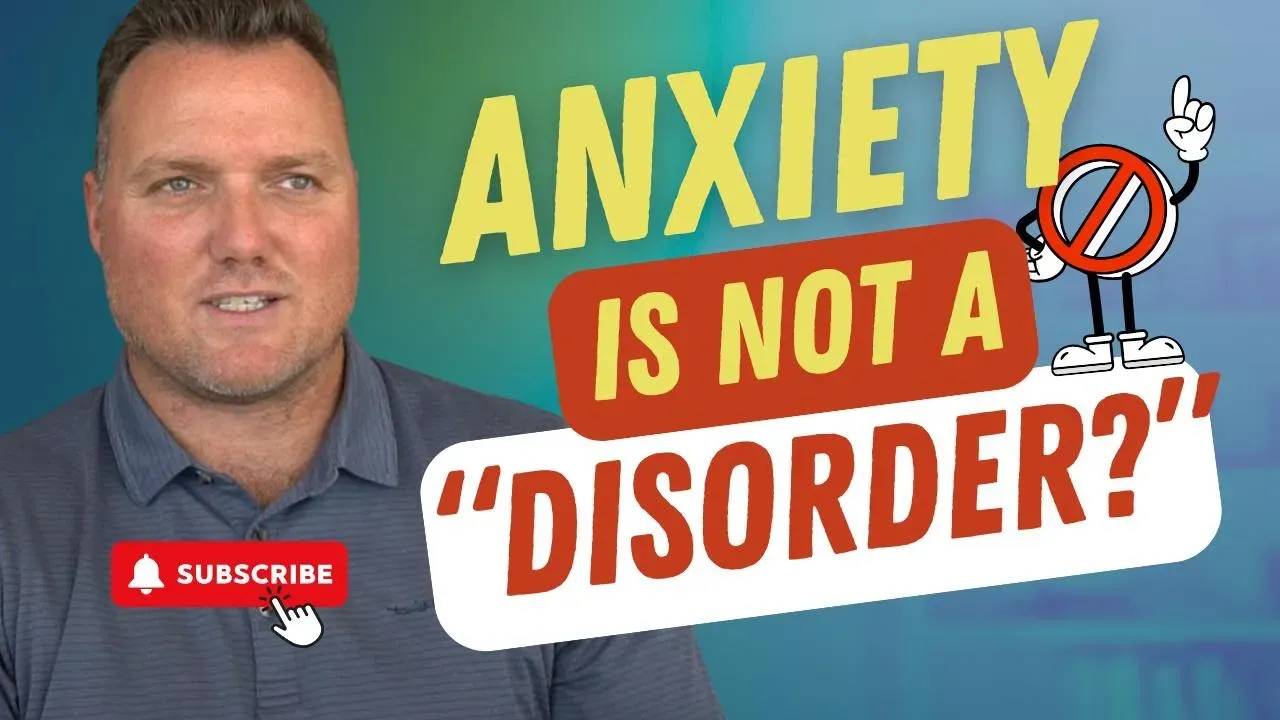What If Anxiety Isn’t a ‘Disorder’? | Breaking Free from OCD, Anxiety & Stress
Sep 24, 2025
What If Anxiety Isn’t a ‘Disorder’? A New Perspective by Matt Codde
Anxiety is often labeled as a disorder—a problem to be fixed, medicated, or suppressed. But what if we’ve been looking at anxiety all wrong? In this thought-provoking discussion by Matt Codde from Restored Minds, we’re invited to challenge the conventional narrative around anxiety and its place in our lives.
Why Do We Treat Anxiety as a Disorder?
Matt Codde highlights how, especially in Western society, anxiety is widely perceived as something abnormal. When anxiety persists, it’s often quickly classified as a disorder, implying that something is fundamentally broken within us. The default path then becomes medication, often with little expectation of ever getting off it.
But Matt asks: is this the best way forward? What if the true issue isn’t anxiety itself, but our relationship and resistance to it?
The Power of Resistance
Matt draws on the wisdom of Carl Jung, noting, “What you resist, persists.” He explains that resisting anxiety—believing it shouldn’t exist—actually cements it in place. It’s not the feeling of anxiety itself that becomes problematic, but the ongoing resistance to its presence. When we label anxiety as an unwanted disorder, we create a cycle where anxiety is pushed down, only to resurface more persistently.
If instead, we stopped viewing anxiety as inherently bad or abnormal, could we break this cycle? What if we accepted it as a universal, human experience?
Anxiety Is a Collective Human Experience
Anxiety and fear are emotions almost everyone encounters. Matt points out the contradiction in believing that something experienced by almost everyone should be labeled a disease or disorder. If fear is a normal, collective human emotion, why are we so desperate to suppress it?
Instead of projecting our fears onto external triggers—flying, germs, or the unknown—Matt suggests that fear originates within us. If it were truly external, everyone would respond to the same triggers in the same way. This insight encourages us to see anxiety as a personal, internal experience rather than a condition caused by the external world.
Transformation Through Fear
So if anxiety isn’t a disorder, how should we approach it? According to Matt Codde, anxiety can serve as a messenger—a bridge to transformation. By learning to face fear, process it bodily, and release it emotionally, we grow into higher states of being and consciousness.
Avoiding, resisting, or medicating anxiety keeps us stuck. Embracing it, on the other hand, allows us to transcend it and become who we’re meant to be. By removing the resistance to anxiety, we can break free from the loop that keeps us stuck in persistent worry and fear.
Rethinking the Narrative
Matt invites us to ask powerful questions: What if we normalized anxiety? What if we stopped calling it a disorder? What if, instead of trying to suppress anxiety, we saw it as an opportunity for growth? When we view anxiety as a gateway to personal evolution, we stop confining ourselves to societal expectations about how we “should” feel or behave.
He challenges us, both individually and collectively, to reconsider how we respond to anxiety. Rather than seeking immediate relief or validation for avoidance, what if we encouraged ourselves—and others—to use anxiety as a stepping stone toward greater self-understanding and growth?
Key Takeaways
-
Anxiety is not necessarily a disorder; it’s a universal human experience.
-
Resistance to anxiety creates persistence—acceptance allows for transformation.
-
Fear originates from within, not the external world.
-
Facing and transcending fear leads to personal growth.
-
Reframing anxiety as an opportunity can empower us to become our true selves.


